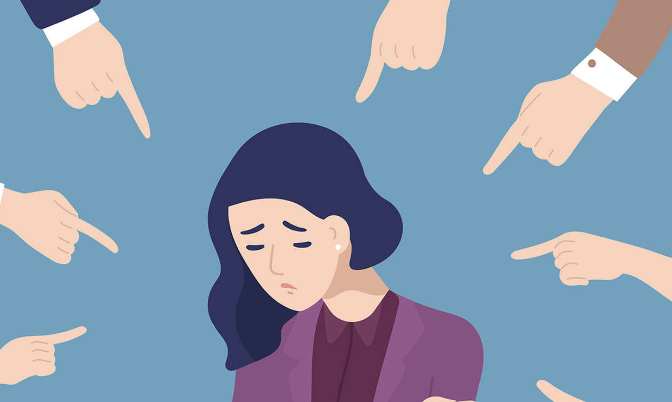Deciding to go to therapy can be a significant milestone in your life, which signifies committing to taking better care of yourself. Now that you’ve decided you want to go for therapy, the next question to ask is usually how often you should be going to see your therapist?
The answer to this question, unfortunately, is that it depends. There is no clear-cut, textbook answer to the number of times you should be going to therapy. Instead, it depends on several factors: what do you hope to achieve out of treatment, what kind of therapy are you receiving, and how proactive are you in applying what you’ve learned in therapy to your everyday life?
This may sound a little too broad, so let’s break them down one by one.
What Do You Hope to Achieve From Therapy?
The primary, positive outcomes of therapy can be split into two categories: feeling the appreciable benefit and achieving full recovery.
Experiencing appreciable benefit means seeing a reliable improvement in how you think and act, resulting in consistent behaviour or thought processes even on less-than-ideal days. However, reaching this level of progress does not necessarily mean “recovery” has been achieved.
Achieving full recovery allows you to feel and function better than when you’ve achieved reliable improvement. Most importantly, chances of you relapsing into unhealthy behaviour and thinking patterns are much lower upon attaining a full recovery.
Studies show that appreciable benefit can be felt within 8 to 14 sessions, while full recovery can be attained between 20 to 50 sessions. So why is there such large variability in the number of sessions? Well, the effectiveness of the treatment doesn’t just hinge on how many times you see your therapist. Frequently, other factors such as the intensity of your symptoms and how committed your therapist is in helping you through each session also affect how fast the recovery you experience will be.
Once you’ve found a good, committed therapist, though, you may be able to take both these numbers and the timeframe within which you wish to achieve full recovery into consideration to work out the ideal frequency of sessions you should be attending.
Do not be afraid to commit to more therapy sessions if you feel that your symptoms are severe or that your treatment goals still have a long way to go before they can be achieved. If you have the means to, especially at the beginning of your treatment when the relationship between you and your therapist is still being built, then by all means, do attend sessions more frequently!
What Kind of Therapy Are You Receiving?
Depending on what you’re seeking therapy for and the kind of treatment your therapist specialises in, your therapist will usually work out a rough timeline with you to determine how often you should be checking in with them.
For example, if your therapist were treating you with cognitive behavioural therapy (CBT), which centres around helping people identify and modify destructive thought patterns that negatively influence behaviour and emotions, then your therapist would probably recommend attending weekly hour-long therapy sessions over 12 to 20 weeks. CBT is considered a short-term therapy technique, so it isn’t uncommon to feel a significant difference within a few sessions. Still, it’s essential to stay the course and complete your recommended quantity of therapy.
Dr Joy Harden Bradford, a therapist based in Atlanta, suggests that if you’ve just begun attending therapy and are still working on explaining your history and establishing a base with your therapist, it would be wise to participate in sessions weekly so as not to have too much time pass between each session.
Even for people who have been attending therapy for some time, Dr Bradford states that it is still essential to maintain at least a biweekly attendance at treatment to continue at a steady pace of progress.
Once you’ve reached a state close to full recovery, where therapy sessions are more for checking in and refining previously introduced techniques to help manage your mental health, then, Dr Bradford says, it is okay to stagger your appointments out to around once a month or so, until you’re eventually ready to stop going to therapy altogether.
As always, consult your therapist to figure out an appropriate and achievable timeframe for your treatment before deciding how frequently you want to attend therapy sessions.
How Proactive Are You in Applying Therapy Techniques to Real Life?
For those of us who have been out of school for a while, the concept of “homework” may have already been unheard of for many years. Yet, making the most out of therapy sessions often involves doing homework – that is, accomplishing tasks or thinking over guiding questions before your next session.
Suppose you were in exposure therapy for social anxiety, for example. In that case, your therapist might ask you to spend one hour of your commute each week without your headphones in to completely immerse yourself in the noisy din that is rush hour on public transport.
While some, and maybe even all, of the tasks set by your therapist may seem daunting, it helps you hone the skills that you and your therapist might have gone over during the session to help tackle an issue you’ve been discussing. In addition, if you proactively apply the techniques your therapist introduces to you and complete the “homework” given to you, the time between sessions can be used productively for you to experience and process how your “homework” makes you feel, which can be discussed during your subsequent session.
Of course, it’s also essential for you to sound out to your therapist about the feelings and thought processes you go through as you carry out these tasks. This helps your therapist gauge your progress and decide if you are ready to tackle assignments of even higher intensity or if it might be necessary to tone it down till you’re more prepared to take them on.
Spending the time between therapy sessions to explore what you’ve learnt in therapy helps make subsequent sessions that much more compelling, perhaps even accelerating your progress. In turn, your therapist may feel confident recommending you reduce your sessions’ frequency to biweekly or even monthly visits.
If you feel more reassured having frequent check-ins or know that having someone to be accountable towards helps you perform better, then continuing to go for weekly sessions may be the most beneficial solution.
As a rough gauge, the consensus is that attending weekly therapy sessions is the most effective in helping you achieve your goals in therapy. It is frequent enough but leaves just enough buffer time in between sessions for you to build up skills that aid in coping and increasing mindfulness. It also helps you adapt smoothly to the level of communication needed for your therapist to work together with you effectively.
Studies have shown that the frequency of attending therapy sessions is pivotal in how fast and how much one can recover, with weekly session attendance being associated with a quicker achievement of clinically significant improvements.
However, we understand that life can get in the way. For example, we may not always have the time or the available resources to attend therapy sessions every week. The good news is that the same study also found that in the long run, the total amount of behavioural change in people who went for therapy weekly and fortnightly was approximately the same, with few significant differences.
Do not rush to set a fixed number of sessions to attend at the beginning of your journey with therapy, or use others’ treatment journeys as a benchmark for your own. We each vary in the problems we wish to address and the severity of our issues, and what works for one person may not work for another. Instead, respond proactively to your therapist’s suggestions and be open with your therapist regarding how you feel as your therapy sessions progress.
As long as you are committed to achieving change in your long-term behaviour and thought processes, the payoff, in the long run, will be equally worth it. Most importantly, remain open to the advice and suggestions your therapist may give you to build a collaborative working relationship. After all, the foundation of a productive therapist-client relationship, which leads to a compelling treatment journey, is communication and trust.




